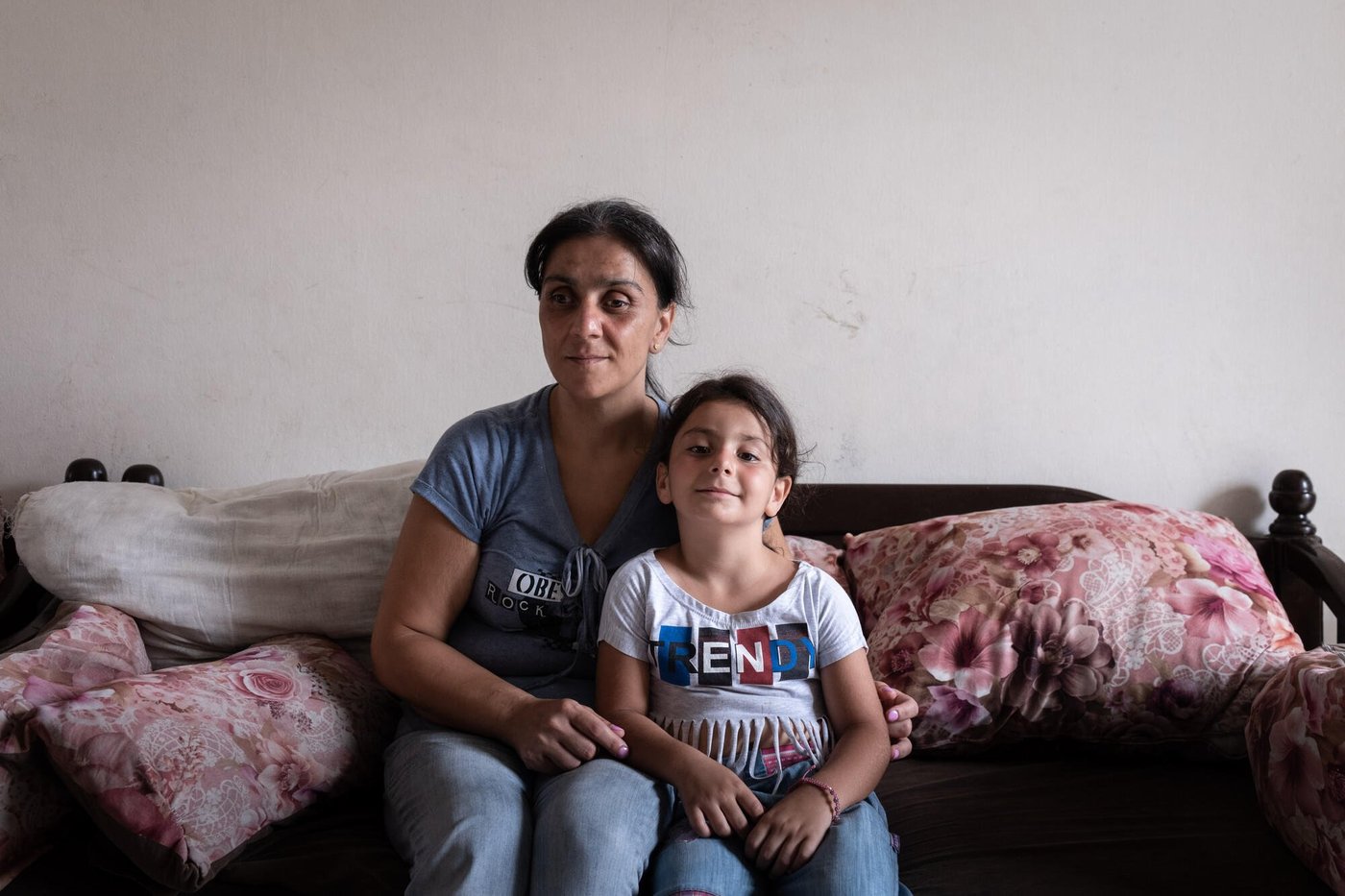Nadine, visually impaired, walks cautiously across the room. Her steps are heavy and audible. She sits next to her five-year-old daughter Joya, who whispers in her mother's ear. They exchange a smile.
When asked about life in Lebanon, Nadine, with typical sarcasm that the Lebanese are renowned for when faced with adversity, quips, "Absolutely lovely." The phrase sounds like a mix of irony, despair, tenacity and hope against the odds.
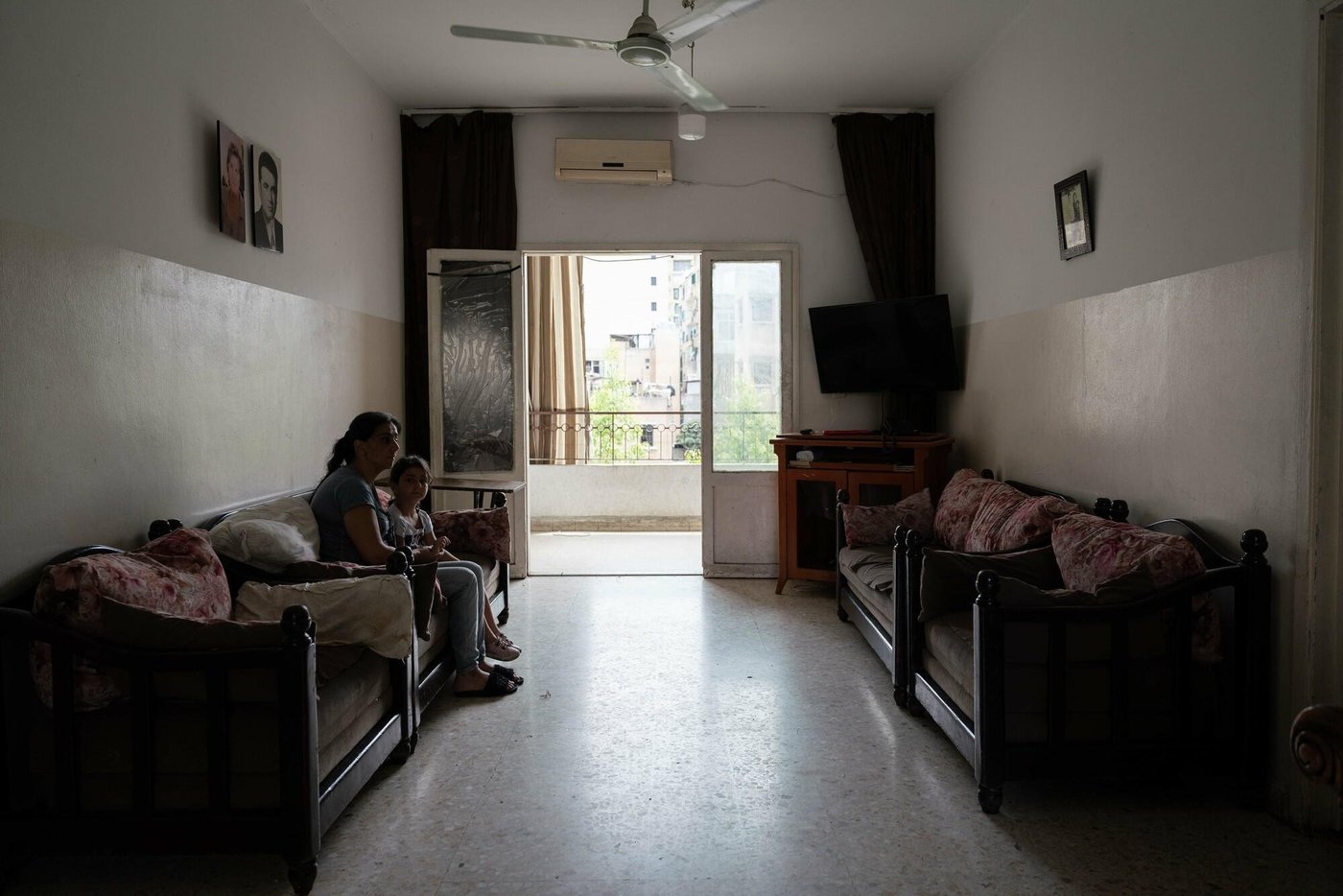
"The economic situation in Lebanon is tough, and it is evident on everything and everyone. Everyone is in the same boat," she goes on.
Nadine, 44, lives with her husband and their three children. Struggling to cope with successive crises, the family has primarily relied on aid for the past four years, as the income Nadine’s husband was making in his job was no longer enough. Not enough because it was paid in Lebanese pound, which has taken a 98 per cent deflation while food inflation stands at 300 per cent.
"The problems in Lebanon started four years ago with the uprising [in 2019], followed by Covid-19, the currency crisis, and the Beirut port explosion,” explains Nadine. “All these events happened one after the other, and we didn't have time to catch our breath. These are all issues that are difficult to deal with.
"The situation wasn't like this before. There were challenges, but our income was sufficient. Now, even when there's a job, we're still struggling."
Nadine's situation mirrors that of many Lebanese families hit hard by the economic crisis and its long-term consequences. According to a recent study by the United Nations Office for the Coordination of Humanitarian Affairs (OCHA) in Lebanon, an estimated 3.9 million people need some form of humanitarian assistance in Lebanon. This includes refugees, and 2.1 million vulnerable Lebanese.
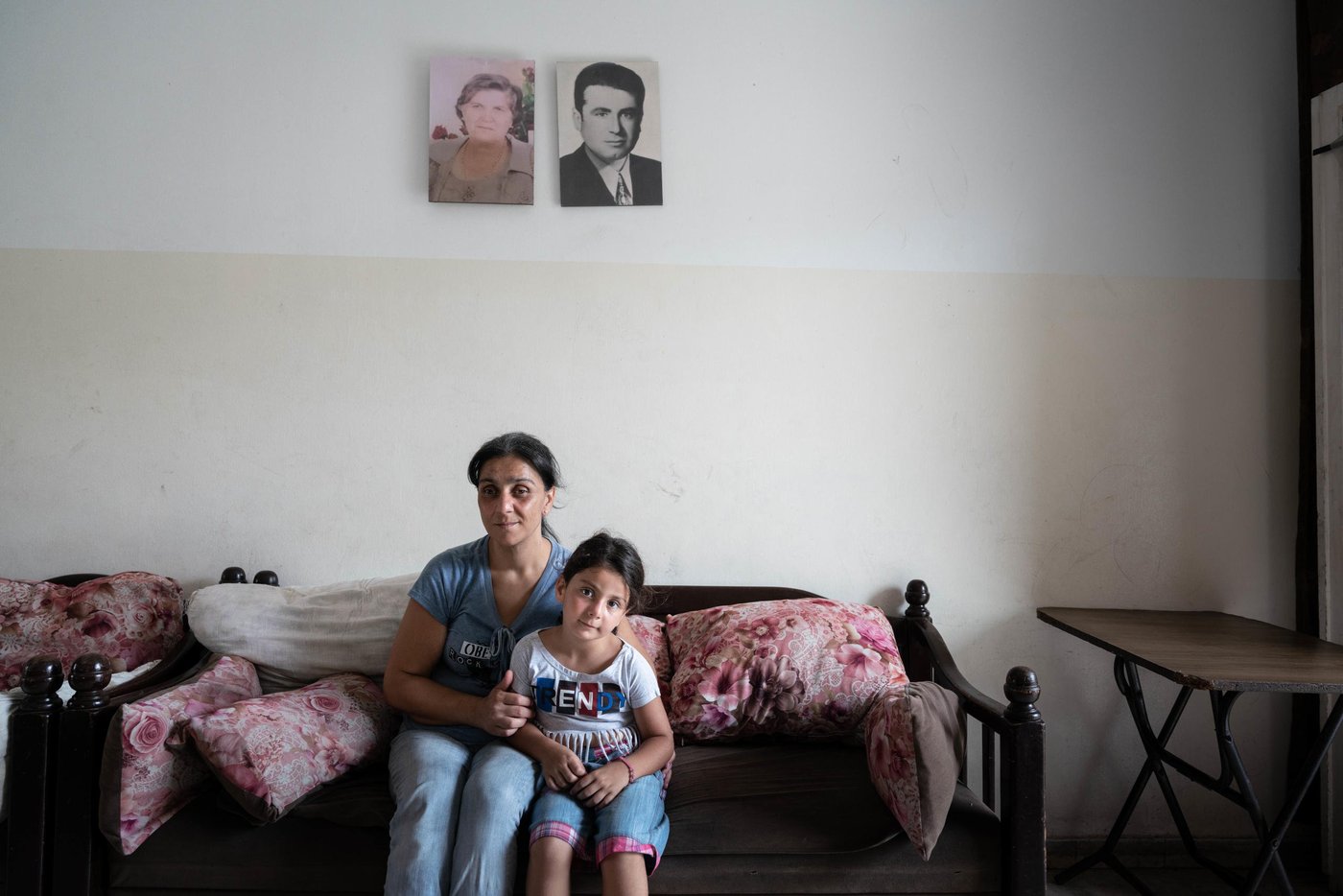
Home means everything
Life with visual impairment is challenging, Nadine thinks, particularly if she had to go out often. She has lived in the same house for four years; it makes it safe and navigable.
"I can't leave the house frequently. [My home is] everything to me. I know every corner; I've adapted here."
The issue of housing and rent occupies much of Nadine's thoughts. As the economic crisis began to bite, she didn't anticipate that the rent she used to pay on time would become her family's top concern. Because of the currency deflation, rent costs jumped overnight.
Figures from the Norwegian Refugee Council (NRC) show that monthly rent increased on average from 2,000,000 Lebanese pounds to 13,000,000 pounds. Compare this to the 5,000,000 pounds that average unskilled workers earn per month, and it instantly becomes clear why people don’t have enough to cover the basics.
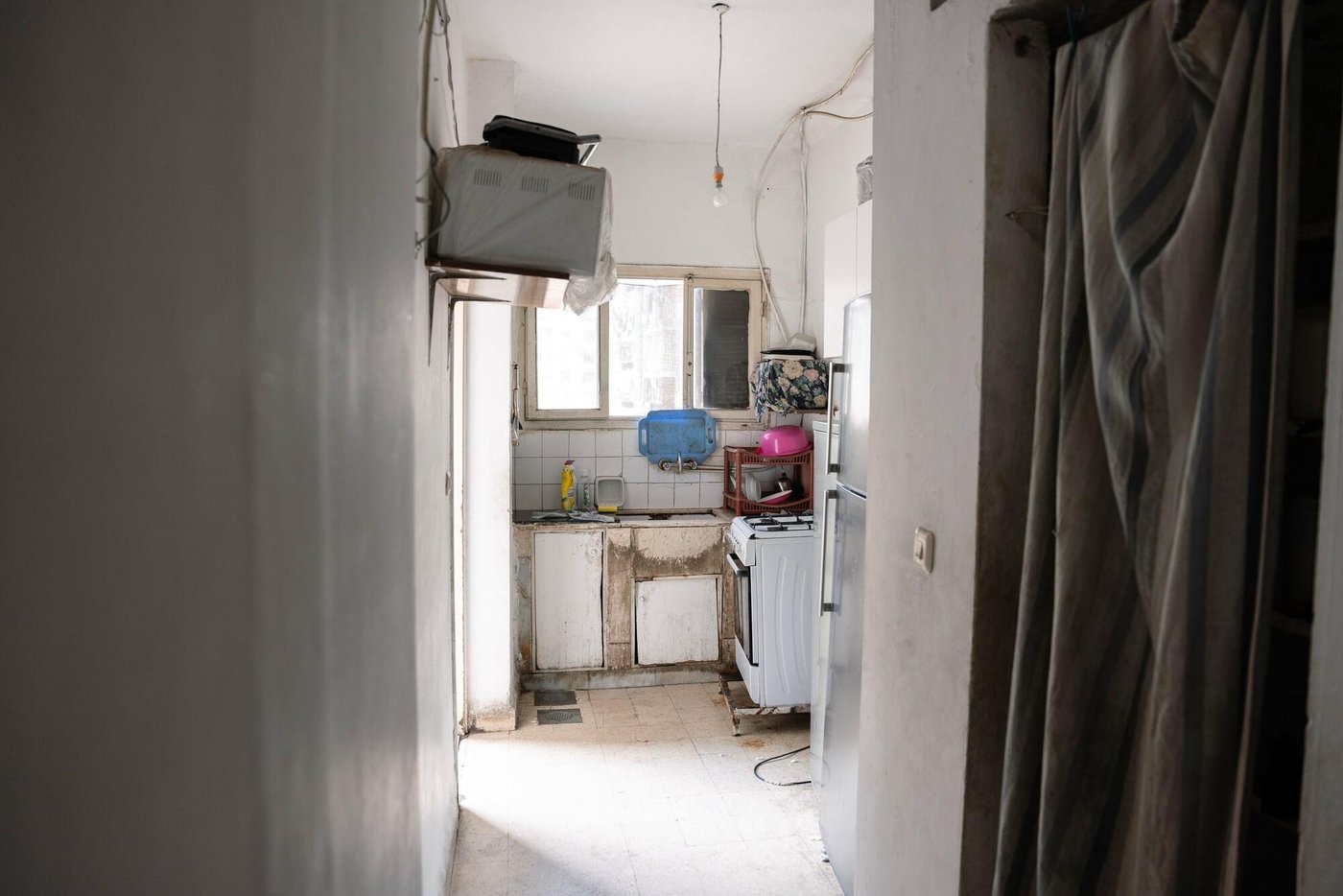
"I don't like when the landlord comes to my door asking for rent,” says Nadine. “If I had the money, I wouldn’t put off payments for three months."
Nadine received assistance from our shelter team in Lebanon through one of our projects funded by the Lebanon Humanitarian Fund, which helped cover house rent for six months. This assistance meant the family could cover other expenses like food, also increasingly out of reach amidst one of the highest food inflation rates in the world.
"The lease agreement with the organisation [NRC] ended in May, and now the landlord wants to raise the rent and will only accept dollars. He's asking for $250 instead of the $150 we used to pay. If we can't pay the rent, we'll have to leave, and he'll give us a two-month notice to find a new home. But where do we go?"
Nadine says that the assistance provided by NRC helped improve things for six months, but given the situation, it might not be sufficient. However, she is aware of the difficult situation others are facing. "Six months of rent coverage isn't enough. Many people still need help. I'm fortunate to have a roof over my head, but others don't. I could be homeless one day."
Life is so expensive
“We're living off food donations and have got used to it. We can't afford to buy vegetables. It's quite hard for us to afford tomatoes. Sometimes we get them during the school semester so that my children can go to school with a simple sandwich. This is the situation for everyone."
Lebanon’s economic collapse has been dubbed as one of the worst economic crises in the last century, amid skyrocketing inflation triggered by the “dollar crisis”. Shops now price essential goods in dollars while employees still receive their wages in Lebanese pounds, making it impossible to keep up with exchange rates.
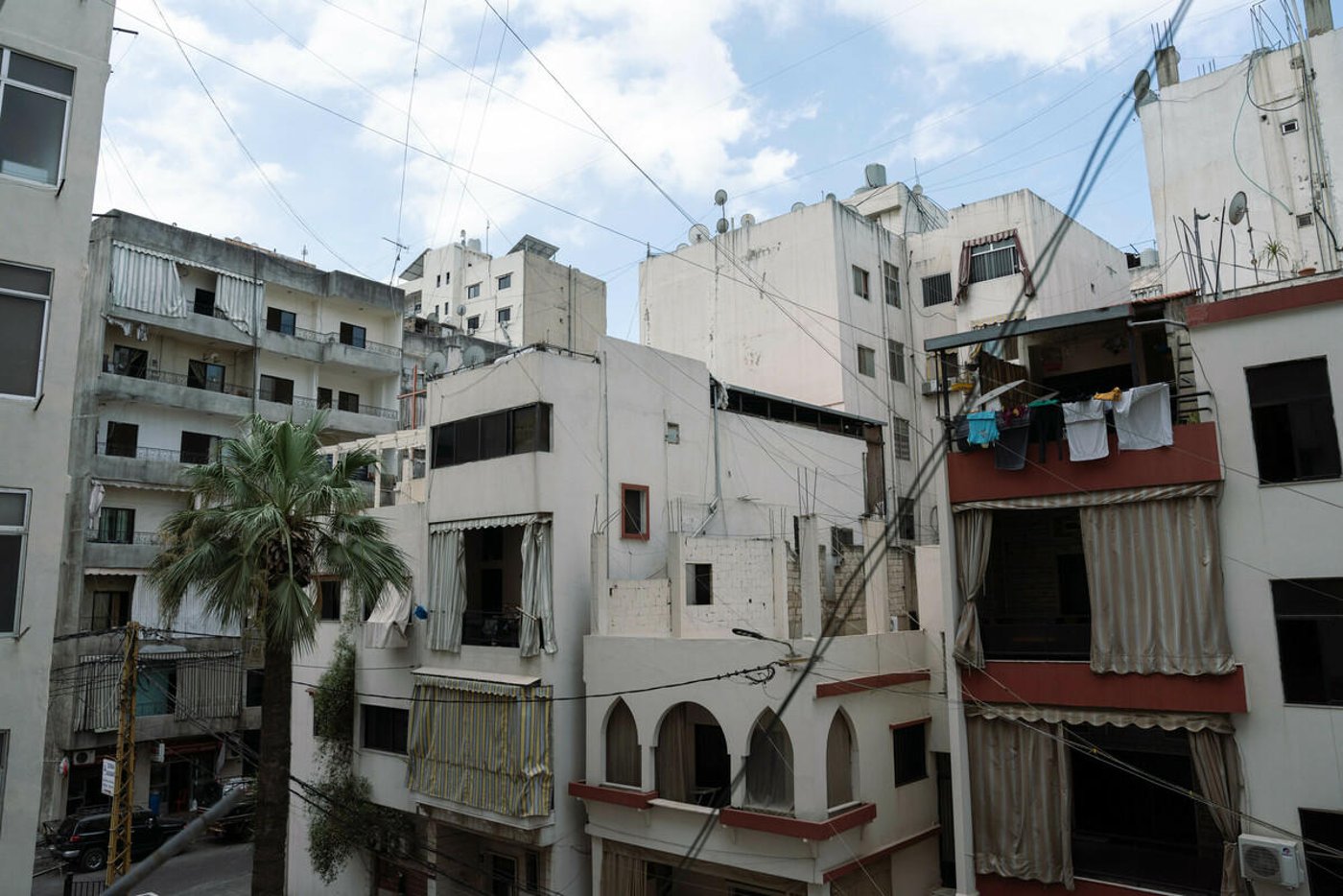
Nadine says malnutrition has caused her severe anemia. She cannot afford healthcare. "I need a blood transfusion for treatment. I don't have health insurance, and going to the hospital would cost no less than a thousand dollars. This might be due to malnutrition since we don't eat healthy food. I have fainted several times."
Even medication is either very expensive or simply unavailable. "We stay away from the pharmacy,” declares Nadine. By ‘we’, she includes her husband, whose heart problems and high blood pressure require constant treatment.
Hope keeps people going
“I can't provide for my children because of the people ruling this country. The blame falls on all these political parties and corruption in the country," Nadine says about her frustration when her younger daughter, Joya, asks for a bag of chips that she can't afford.
"I hope the political situation improves. If it continues like this, the future generation will have a hard time adapting. They won't have anything left.
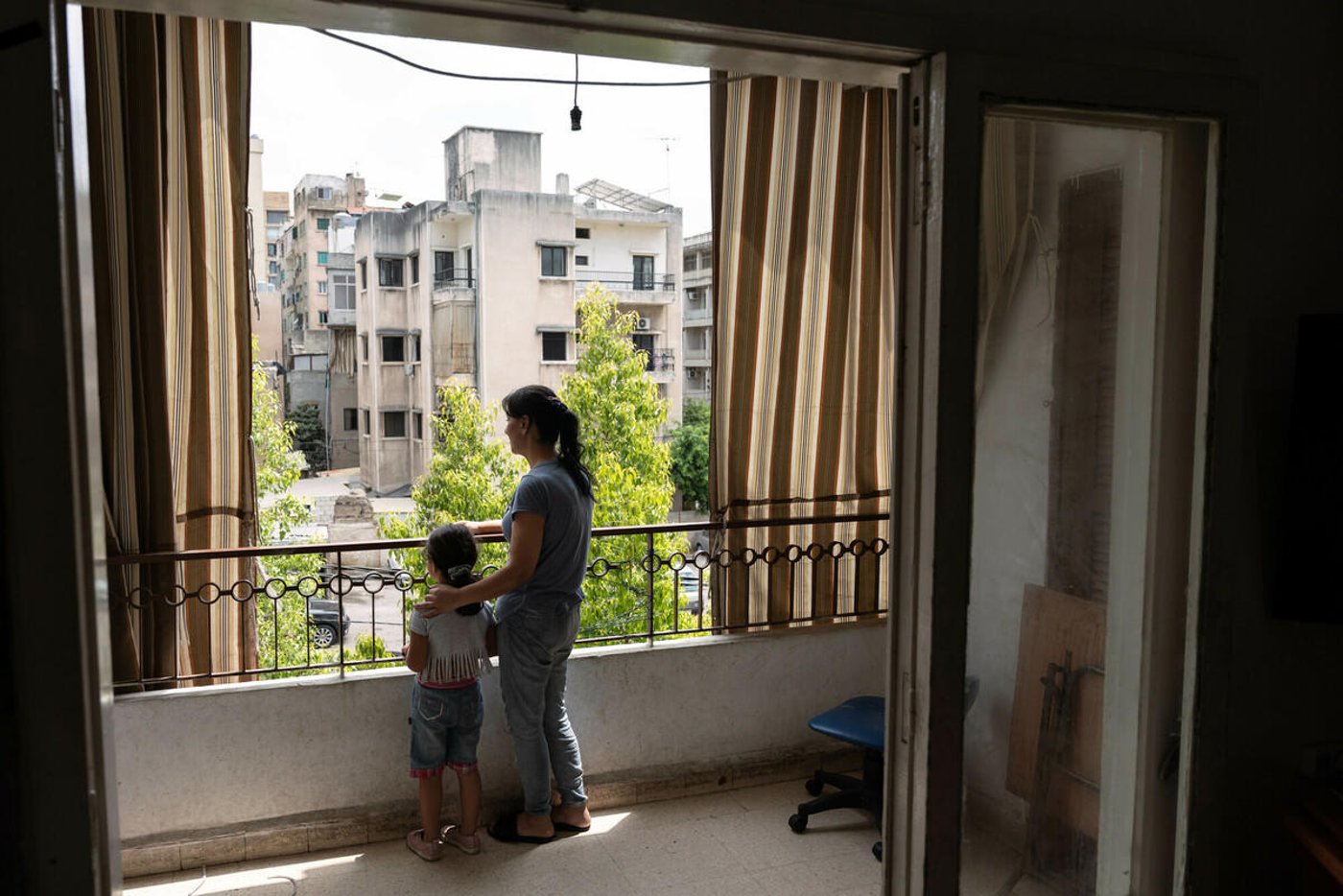
Despite all the difficulties, Nadine and her husband are determined to look forward with hope for their children. Education is their top priority. Nadine does not want to risk enrolling her children in public schools due to frequent teacher strikes that have affected the quality of education. “The school was very supportive in the past two years, accepting late periodic payments. However, last year they began requiring fees to be paid in US dollars. They need $1,200 for the next semester, and I still owe around 4.5 million Lebanese lira from previous semesters.”
Nadine explains while hoping the school will also be flexible this year. But there remains the burden of being able to pay for the children’s transportation to school.
“I only care about educating them. We are doing our best to ensure that our children learn. It's a lifesaver.”


